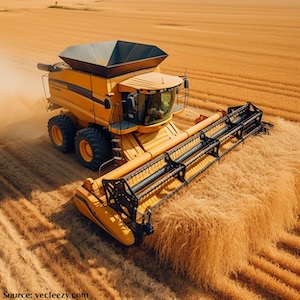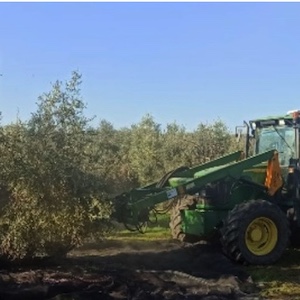Energy optimization control of extended-range hybrid combine harvesters based on quasi-cycle power demand estimation

All claims expressed in this article are solely those of the authors and do not necessarily represent those of their affiliated organizations, or those of the publisher, the editors and the reviewers. Any product that may be evaluated in this article or claim that may be made by its manufacturer is not guaranteed or endorsed by the publisher.
Authors
This study develops an energy management strategy (EMS) for hybrid combine harvesters to address fluctuating power demands in agricultural operations. By segmenting harvesting processes into quasi-periodic cycles linked to machine dynamics, the method integrates component-specific power models (header, conveyor, drum) for accurate energy estimation. Real-time feed rate adjustments are achieved through dynamic responses of critical components, optimizing cycle duration and power allocation. A genetic algorithm synchronizes energy distribution and cycle timing to minimize fuel consumption. Validated via AMESim/Simulink co-simulation with dual engine models, the strategy reduces fuel use by 21.1% compared to conventional systems. Key innovations include quasi-periodic load segmentation, component-response-based feed rate prediction, and GA-driven multi-objective optimization. The approach enhances adaptability to variable harvesting conditions, offering a scalable framework for energy-efficient electrification in agriculture. Results demonstrate significant potential for hybrid systems in reducing operational costs and emissions while maintaining productivity under dynamic workloads.
How to Cite

This work is licensed under a Creative Commons Attribution-NonCommercial 4.0 International License.













